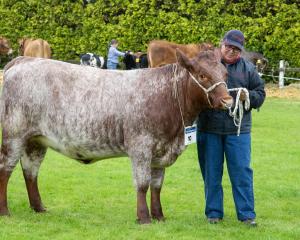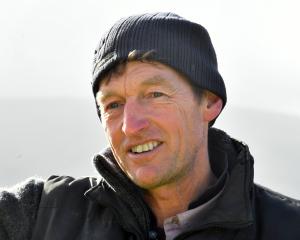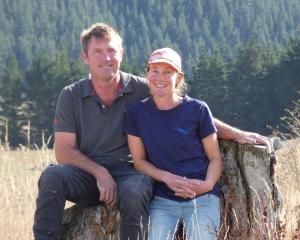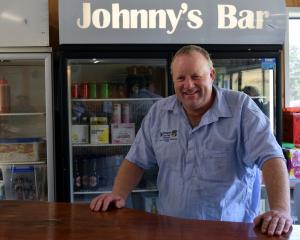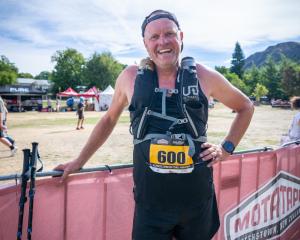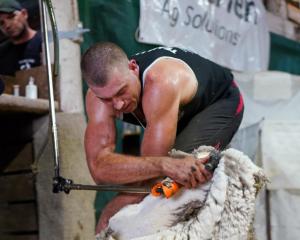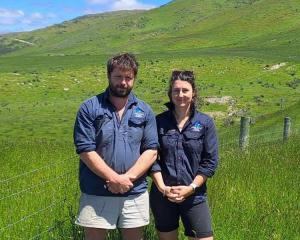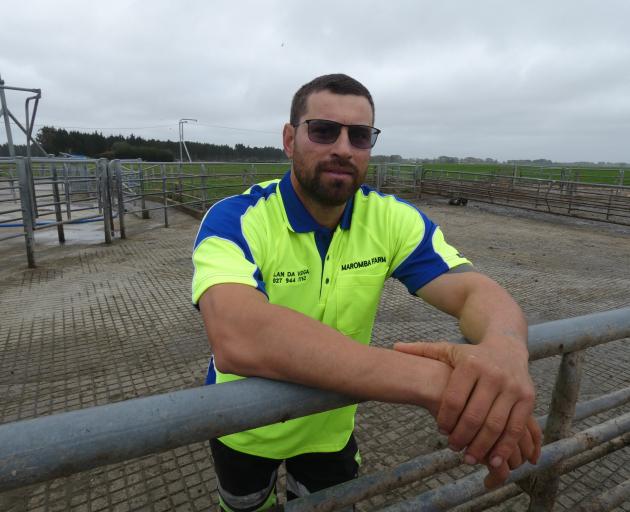
As a sniper for Brazil’s special forces Alan Robson da Veiga learned the art of patience and this has paid off many times over in dairy farming.
When police needed assistance in the vast South American nation, the army was brought in to keep the peace during demonstrations or to help with vehicle stops to search for drugs or guns.
A stint providing military assistance in Haiti eluded him, but by his third year he was deployed to stay in the jungle for three weeks.
In his role with Brazil’s Special Operations Command he was expected to lie hidden, remaining motionless for hours.
"I learned to wait and wait. You train the way you are breathing and just listen to your heart rate. It was incredible how we actually stayed.
"It’s hard to explain, each time is different. You get to know your body. I take full control of my body and I can work three days if I have to without sleep and I will be in the same mood.
"I’ve done this before — I’ve been awake for two days when I have so much to do. When I talk to people what I do on the farm or my life to get jobs done in 24 hours they think that’s impossible — ‘how do I do that?’ and ‘why?’ and ‘that’s crazy’. My whole life I hear that."
Compared with the rigours of military life, he finds the discipline of dairying relatively easy.
As a contract milker for Dairy Holdings on an irrigated farm in Canterbury’s Southbridge near Leeston, the 37-year-old is out of the bed running at 2am each morning and hits the pillow again at 9pm.
When the irrigation needs moving at the 260ha property running 1000 cows he gets the job done, irrespective of time.
"I don’t like being late. If I have to be there at 3am I will be there before then. I start and make my days easier for my guys who help me on the farm and myself because if something goes wrong we have time on our hands. I work all day on the farm and then I go to the gym, go do my workout for one hour then come home."
The military runs strong in his family.
"I was a sniper in the infantry for a few years. I loved it, but I couldn’t stay as the maximum was seven years to stay there. That comes from generations of my family serving and my great grandfather went to the army and my father and then I went. When I left, my middle brother went to the army. It was a great time and I learned so much."
Raised by a solo mother, he grew up in a poor part of the town of Ceu Azul, about 1000km south of Sao Paulo.
His dad died when he was young and his mother was at home looking after a large family.
"So I had a very rough life and that’s why I went to the army. Mum raised us well and we always used to share clothes, everything."
In Brazil it was too hard to set up a business and his whole family had always been employees — for the military or in other occupations. He’s the first in his family to be self-employed and work for himself.
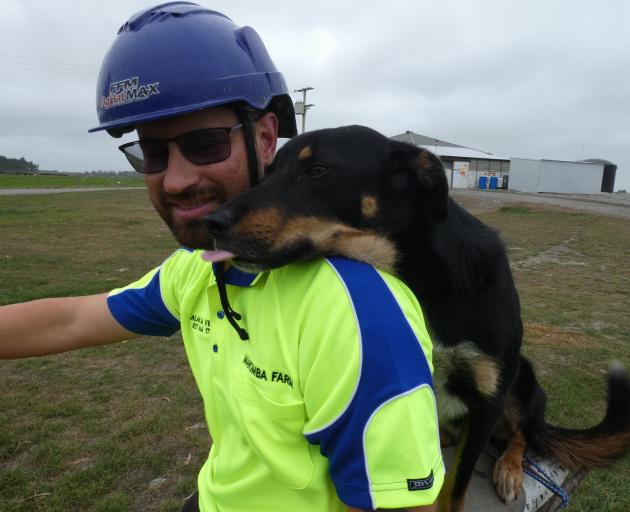
He liked working with his hands and learning about growing. He stayed there until his visa ran out and returned home.
With few work opportunities, he started searching for another overseas destination and applied for working visas in New Zealand, Canada and Denmark.
When he wound up here in 2012 on a three-month visa, his only belongings were in a backpack and he could barely speak a line of English.
"I had $200 in my pocket and I stayed in Auckland for just a day and then flew to Christchurch where I found someone who gave me a job on a dairy farm. I did not know anyone and I didn’t even do any research. I just came because I had to find somewhere else. I had a credit card, right, but ... I only had $200 [cash] and I tried as much as possible to avoid touching the card."
He picked Christchurch because it was the main flying route into the South Island.
"Why the South Island? Because I like the cold and the South Island was colder than the North and I wanted to see snow as well."
He worked as a farm hand employed by a contract milker for a family farm in Ashburton.
"When I got here I could not speak English. It was hard as I could not speak, read, write, nothing. We speak Portuguese in Brazil and I had to start from zero.
"I had a good boss and because I was in the army I had a lot of vision about things, right. I couldn’t speak, but when somebody showed me a job, they wouldn’t have to show me two times because I had to show them I was worth it.
"I had to stay here to help my mum and my two brothers in Brazil and I had to do this. When they wanted me to do irrigation I would do some studies on the computer and dictionary actually. I still have my dictionary here."
Reliable, willing to learn and with a good work ethic, he picked up dairying skills quickly.
For two and a-half years he stayed at the farm, until a knee injury required surgery and he moved to Timaru, meeting his ex-partner.
Then he shifted to South Canterbury’s Orari to work for another contract milker with a mutual understanding he would eventually be promoted to a second-in-charge position and farm manager.
Now he is contract milking himself for a Dairy Holdings farm in a special employment agreement to own cows and other dairy stock.
He gets a set price of the milk take and leases his cows to the company which helps him build up equity.
This June he will have 150 cows on top of 110 rising-two-year-old heifers.
"Everything is about building up equity at the moment. One of the big sacrifices I’ve done so far is I’ve never gone back home since I got here. For 12 years I’ve never been home and haven’t gone anywhere else other than New Zealand. I talk to Mum almost every day and helped her come here several years ago. She loved it because remember she can’t speak any English and she came all by herself."
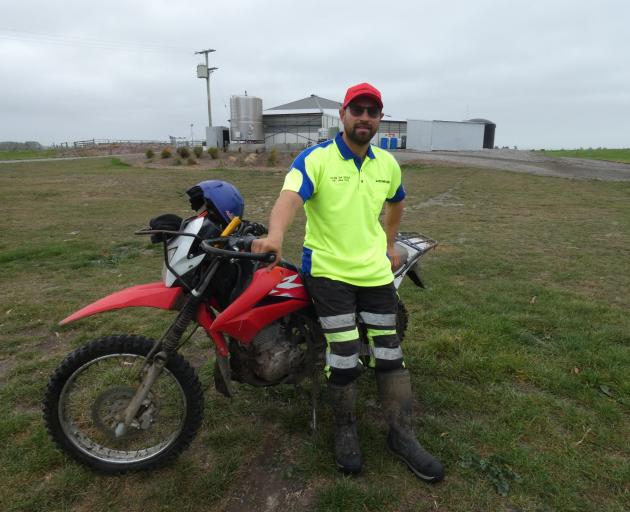
The win is still sinking in for the contract milker who has only been working in dairying for just over a decade. It was achieved in his first attempt in the competition.
"I thought I was ready to go out there and show how I run the farm and how I started and tell a little bit about my story."
The separated father has his children, Oceana, 13-years-old, Tyga, 8, and Theo , five, most weekends and tries to compress the working week so he can spend time with them.
Dairying’s outlook is rosier now with the payout lifting to $7.50 a kilogram of milk solids.
Most of the herd is still twice-a-day milking aside from early calvers now only entering the milk shed once daily, with the last milk of the season due to go into the vat about the middle of next month.
"I’m having a great season. My target is 300,000kg milk solids which is about 1180 milk solids per hectare. Animal health is one of the reasons we are doing well and good pasture management. This is the key, because if I look after the pasture, the pasture looks after the cows, cows look after the vat, and the vat takes care of the finances. Working with people and teaching them as well is important."
Mr Robson da Veiga’s natural instinct is to roll up his sleeves and work long hours, but knows this will have to change as he progresses in dairying.
"I love the cows and love to get up to work. Rainy days — it doesn’t matter and I enjoy milking and doing everything. But now that I’m the boss I need to tell people to do everything. I’ve worked hard in the business and now I have to work more on the business."
As the contract milker he employs two staff and they are his half brothers — Alex and Davi Carvalho.
He helped Alex come over to learn many dairy skills at the Orari farm. Alex took over the 2IC role and worked for four years when Mr Robson da Veiga moved to his current position and then joined him again. Last year they encouraged Davi to move over.
Both of them also served in the army.
Future farming and family goals include sharemilking and farm ownership.
"They are helping me out and after that I will be able to help Alex out and he and I will be able to help Davi out and then maybe the three of us can do something together in the future. Having our own farm will happen."
The goal is to get Davi up to speed so he can take on the 2IC role and Alex can become a contract milker to build up income and possibly his own cows.
"It’s inspiring I think. People think it’s hard to buy a house nowadays, but I think it’s possible. If you think it’s impossible then it’s already impossible."


